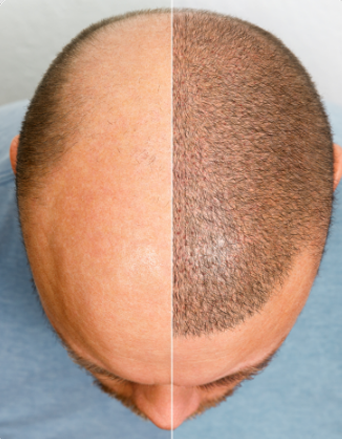Bariatric Surgery
Bariatric Surgery: A Comprehensive Guide
Bariatric surgery is surgery that affects the stomach and the digestion of food. It is intended to shrink the stomach, allowing a person to feel full after eating only small amounts of food.
This procedure, also known as bariatric surgery or stomach reduction surgery, is part of a multidisciplinary weight loss program that also includes healthy eating, exercise, and treatment for diseases such as type 2 diabetes or thyroid disease.
Bariatric surgery is an important medical procedure used to help you avoid the health problems caused by obesity rather than for cosmetic reasons.
By shrinking the stomach, bariatric surgery reduces the amount of food you can consume. This surgery can be performed in a variety of ways. These procedures involve the removal of a portion of the stomach, placing a band around the stomach, or relocating the opening between the stomach and the small intestine.
Many bariatric surgeries, such as gastric bypass and gastric banding, promote weight loss while reducing your body’s eating capacity. These procedures can be done laparoscopically or endoscopically.
Our skilled and specialized doctors perform bariatric surgeries using cutting-edge technology. If you are interested in having one of the bariatric surgery procedures, don’t hesitate to get in touch with us for online consultation.
Who Is a Good Candidate for Bariatric Surgery?
When diets, exercise programs, and intensive behavioral therapies to manage excess weight are ineffective, bariatric surgery may be considered. In the following circumstances, you may be a candidate for bariatric surgery:
- If you have a body mass index (BMI) of 40 or higher,
- If you are heavier than 100 kilograms,
- If you have a BMI of 35 or higher and are suffering from obesity-related complications,
- If you are 18 or older and have tried and failed non-surgical weight loss methods,
- If you are committed to making long-term lifestyle changes like diet and exercise,
For more information, don’t hesitate to get in touch with us and request an online consultation with one of our specialists.
Bariatric Surgery in Turkey
Compared to European and American countries, bariatric surgery in Turkey provides much higher quality services at lower costs. At the same time, because Turkey is a tourist destination, patients see our country as an excellent choice for both vacation and treatment.
Turkey is one of the most popular destinations for medical tourism worldwide. Patients prefer Turkey for clinics and hospitals that use modern medical technologies, quality service, specialized doctors, and lower treatment costs.
With its strong health system, Turkey is a leading country in health tourism. If you are considering bariatric surgery in Turkey, our clinic is ready to welcome you!
What Are the Advantages of Bariatric Surgery?
Patients benefit greatly from bariatric surgery, both psychologically and physically. If you’re wondering what the effects of bariatric surgery are, we’ve got you covered. Bariatric surgery, regardless of the treatment method you and your doctor choose, significantly improves health problems such as;
- Hypertension (high blood pressure)
- Excessive cholesterol
- Cardiovascular disease
- A more active way of life
- Obstructive sleep apnea
- Boosts self-esteem
There are numerous advantages to having bariatric surgery. It can bring about physical changes as well as improve your overall quality of life.
If you want more information on bariatric surgery procedures, don’t hesitate to contact us. You can request an online consultation to learn more about any procedure that interests you.
How Is Bariatric Surgery Performed?
We can divide the bariatric surgery operation process into 3 groups. These are:
Pre-Operation:
Our patients’ safety is our top priority. Throughout the process, Esvita takes care to provide safe, high-quality, supportive care. First, adhere to the diet plan devised for you with the assistance and supervision of our specialist doctors.
Our doctors will then go over the procedure with you. It is critical to us that you do not have any unanswered questions, so we are always available to answer all of your concerns.
Operation:
Bariatric surgery is performed under general anesthesia. Most patients are hospitalized for one to three days following the procedure. Most bariatric surgeries are performed laparoscopically or robotically by our skilled bariatric surgeons.
These techniques also provide numerous advantages, such as smaller scars and the possibility of a simpler, faster recovery. While in the hospital, your care team will check on you frequently to ensure that you are recovering properly and have everything you need before you leave.
Post-Operation:
Following the operation, the patient should carefully follow our doctors’ recommendations. The patient should avoid heavy sports and avoid using excessive force until the surgical incisions are completely healed.
The process after bariatric surgery is as follows:
- During the first 5-7 days, our doctors will always monitor your condition with you.
- 1 month: General evaluation and follow-up on the diet list provided by your doctor.
- 3 months: Consultation with a dietitian or nutritionist to assess your diet.
- 6 months: Routine blood test and general doctor check-up
- 1 year: 1 year after the operation, a check-up with your doctor and routine tests
What Is the Purpose of Bariatric Surgery?
Have you tried diet and exercise before without success? Bariatric surgery may be an option if you’ve tried everything else and still can’t lose weight. Bariatric surgery is performed to help you reduce your risk of developing weight problems that endanger your health.
It also aids in the prevention of heart disease, stroke risk, high blood pressure, sleep apnea, and type 2 diabetes.
What Are the Types of Bariatric Surgery? What Procedures Are Performed?
You might be a good candidate for one or more bariatric procedures. Based on your overall health, the amount of weight you need to lose, and other factors, your health care provider will make a recommendation that they believe is best for you.
There are bariatric surgery procedures available to meet the needs of every patient. These are the operation options.
- Gastric balloon surgery is a weight loss procedure that involves inserting a silicone balloon filled with saline into the patient’s stomach. This surgery is designed to make the patient feel fuller and lose weight faster.
- Gastric Sleeve: Sleeve gastrectomy, also known as gastric sleeve surgery, is a surgical procedure that removes a large portion of the stomach. This surgery is designed to make a person feel full after eating a small amount of food, preventing weight gain.
- Gastric bypass surgery involves using a surgical stapler to create a small pouch at the top of the stomach, which is then connected to the small intestine. This surgery is designed to make you feel fuller. This allows you to consume fewer calories from your food.
What Should You Do After Bariatric Surgery?
After bariatric surgery, patients usually stay in the hospital for one to two days.
You must make significant lifestyle changes to lose and maintain weight after bariatric surgery. For example, you will need to adhere to your doctor’s dietary recommendations for an extended period. Your doctors will also advise you to exercise.
If you have any concerns or questions while you are recovering, please do not hesitate to contact our doctors. We are always available to assist you in succeeding and feeling good during this process. Esvita Clinic is here to help you take steps toward a healthier tomorrow!







 EN
EN IT
IT FR
FR ES
ES DE
DE